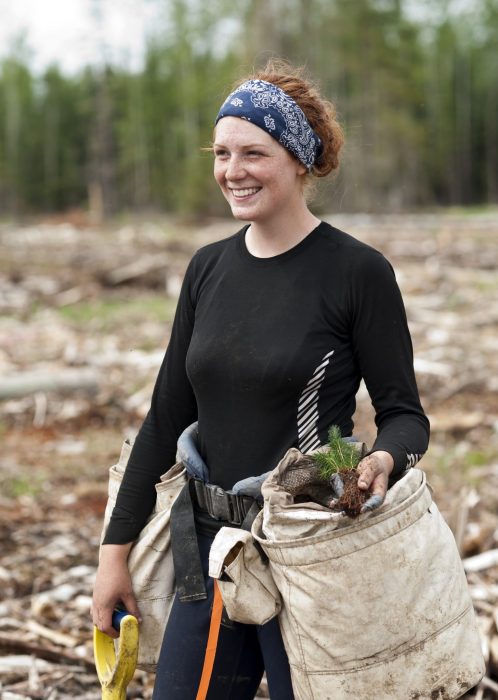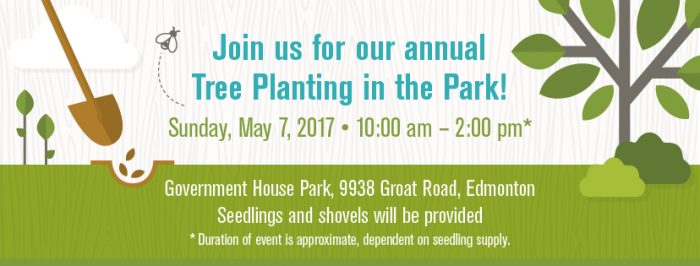After trees are harvested, what really happens? Do forests grow back naturally? Is everything seeded? What responsibilities does the forest industry have?
First things first, less than 1% of Alberta’s forested area is harvested per year. While this may not seem like a lot, it translates to roughly 23 million cubic metres of deciduous and coniferous trees harvested annually. That is a lot of trees! The amount that is harvested has to do with the concept of sustainable yield, which has been in place in Alberta since 1949. Another important part of sustainable yield is reforestation, the re-establishment of trees following a disturbance, such as harvesting, fire, or pests.

It is the law in Alberta to reforest harvested areas and it is in everyone’s interest. Forests provide a wide range of ecological services: oxygen production, animal habitat, clean water, and carbon storage. Additionally, 57,000 Albertans work directly or indirectly in the forest industry and trees create a wide variety of products from dimensional lumber to car parts, all important aspects of Alberta’s economy. There are many parts to reforestation following tree harvesting. Reforestation is a 15 year process with many moving parts such as the reintroduction of trees, weed management, and establishment and performance surveys. Silviculture foresters are responsible for ensuring that forests regenerate successfully according to the 15 year timeline.
So, if forests are so important how does reforestation actually occur? In Alberta, natural and human aided techniques are used to reforest. Natural regeneration occurs without a great deal of human intervention. Trees, such as trembling aspen, can sucker from the roots just below the soil surface. You can see this if you have a trembling aspen in your yard; the first year you have just one tree and the next you have many! Due to this behaviour, trembling aspen dominated forests are left to naturally regrow. Approximately 21% of harvested areas in Alberta grow using natural techniques.
Other forests require a bit of help to successfully grow. These areas are reforested using artificial techniques that help ensure the long term success of the stand. Seeds and seedlings must be appropriate for the climate and specific site that the forest is growing and there are multiple regions in Alberta with different requirements. One of the main ways that harvested areas are reforested is with tree planters. Over 74 million trees were planted by tree planters in Alberta this year. Tree planting is a great way to get outdoors, explore Alberta, and contribute positively to the forest industry! Motivated and hardworking planters have the opportunity to finance their education and living requirements with a season of hard work! Tree planters can plant 2,000-4,000 trees a day in a variety of areas under all conditions. To find out more information about tree planting, visit www.tree-planter.com.

Over 15 years, regardless of how they began growing, forests are surveyed to ensure that the trees are successfully establishing and growing in the harvested area. At the end of the 15 year monitoring period, forests are assessed every 10 years during forest inventory updates. On average, trees are between 80-100 years old at the time of harvest so patience is important when waiting for forests to grow to maturity. Once forests are mature, harvesting can begin again; this is part of what makes forestry a sustainable industry.
If you want to get outside and have a taste of what tree planting is like, come visit Work Wild at Government House Park on Sunday May 7, 2017 between 10 am and 2 pm to plant some trees!
